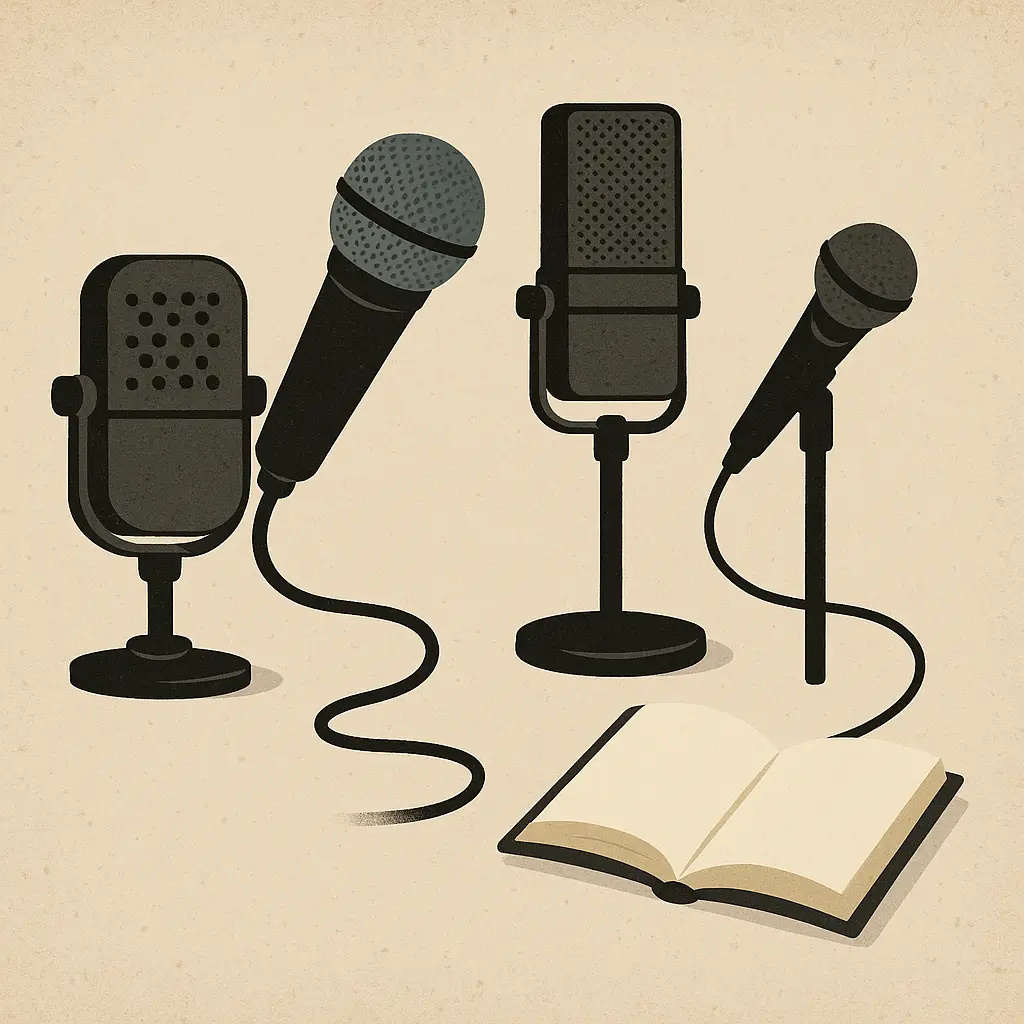Spoken Word in the UK (1970s–Present)
Early Influences (1970s–80s)
October 23, 2025

While spoken word poetry is growing in the US, its seeds are also taking root in the UK — especially in urban centers shaped by migration, inequality, and music culture.
“In the 1970s and 80s, Black British poets begin fusing Jamaican dub, reggae, and patois with political critique. This is the sound of dub poetry — and its central figure in the UK is Linton Kwesi Johnson. His poems speak directly about police brutality, racism, and Black British resistance. His work, often performed with music, is a foundational moment in UK spoken word.”
“Benjamin Zephaniah follows close behind — using rhythm, humour, and protest to reach schools, youth centres, and stages. He says, ‘I don’t write poetry for the page; I write it for the voice.’ Spoken word here is deeply rooted in Black British working-class life, especially in cities like Birmingham and London.”
Key Figures
- Linton Kwesi Johnson – Pioneer of dub poetry; political, rhythmic, defiant.
- Benjamin Zephaniah – Revolutionary poet for the people; anti-establishment, widely accessible.
- Jean ‘Binta’ Breeze – First female dub poet; fused mental health, feminism, and Caribbean identity.
- Lemn Sissay – Poet of identity, care experience, and resilience; strong public presence.
Growth of Scenes (1990s–2000s)
By the 1990s, spoken word begins to gain traction through grassroots venues and youth programs. The London spoken word scene becomes a vital space for creative expression.
Apples and Snakes, founded in 1982, becomes the UK’s leading spoken word organisation — running workshops, tours, and events across the country. They help bridge the gap between grassroots performance and mainstream recognition.
In the early 2000s, organisations like Hammer & Tongue create competitive formats similar to the US slam scene. Meanwhile, collectives like The Roundhouse Poetry Collective, and Chill Pill nurture new voices in the capital and beyond.”
Contemporary UK Artists and Movements (2010s–present)
Today, UK spoken word includes diverse voices across class, gender, race, and identity. Some key figures include:
- Salena Godden – writing fierce, unapologetic poetry around race, feminism, and history.
- Raymond Antrobus – fusing spoken word and page poetry, engaging with Deaf identity and sound.
- Kae Tempest – blending poetry, rap, and theatre to tell stories of modern British life.
Organisations like Young Identity (Manchester), Poetic Unity (London), and Slambassadors (national youth slam program) continue to make space for emerging voices — particularly from working-class and global majority communities.
The influence of grime, drill, and hip-hop is massive — spoken word in the UK is deeply connected to the sound and slang of its cities. And now, digital platforms like YouTube and TikTok are reshaping the landscape again.
Activities
- Tag Team Poem: In pairs, alternate lines to build a poem aloud in real time.
- Rewrite the Headline: Take a recent UK news headline and rework it into a poetic protest line.
- Crowd Energy Drill: Practice snapping, clapping, or saying “Yesss!” to support a performer mid-piece.
- Spoken Word Selfie: Write one line that captures your voice, identity, or postcode — say it like a mic drop.